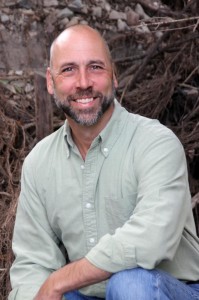 The full spectrum of human nature cannot be taught; it must be discovered. But it is virtually impossible to discover in the modern world of computer games, social media, and texting.
The full spectrum of human nature cannot be taught; it must be discovered. But it is virtually impossible to discover in the modern world of computer games, social media, and texting.
Seldom do we see anything but the worst of human nature in the world of politics or in the mansions of materialism or the ivory towers of skepticism.
The positive virtues of human nature cannot be discovered in the adolescent world of false opulence and irresponsibility, the latest fashions, access to fast cars, premature privacy, and iPhones.
In Chesterton’s Orthodoxy of 1908, he relates how his first impressions of life were framed in the world of fairy tales.
He compares his belief in God to the faith requisite to flourish in the land of make-believe.
He talks about how academia and science are both distractions from the truth of education and how things really work in the natural world.
The ultimate purpose of studying the liberal arts, the study of human nature, is to come face to face—with ourselves.
G.K. Chesterton makes this case in his famous essay mentioned above:
“We have all read in scientific books, in all romances, the story of the man who has forgotten his name. This man walks about the streets and can see and appreciate everything; only he cannot remember who he is.
“Well, every man is the man in that story. Every man has forgotten who he is. One may understand the cosmos, but never the ego; the self is more distance than any star. Thou shalt love the Lord thy God; but thou shalt not know thyself.
“We are all under the same mental calamity; we have all forgotten our names. We have all forgotten who we really are. All that we call common sense and rationality and practicality and positivism only means that for certain dead levels of our life we forget that we have forgotten.
“All that we call spirit and art and ecstasy only means that for one awful instant we remember that we forget.”
Whether Chesterton’s century-old Orthodoxy or the Orations of Cicero from two millennia ago, they are as relevant today as when they were scratched onto parchment or typeset on the press. They address the one thing that has not changed for 6,000 years—our nature as human beings.
Like the children discovering C. S. Lewis’ wardrobe, we can only travel to the land of self-discovery, the land of “real” reality by pushing through and disregarding the regular occurrences of life and spending hours and hours of undistracted time with the classics.
In education (not schooling mind you), we make huge strides in the direction of entering on the path of becoming true liberal artists, only to be sucked out to sea with the tsunami undertow of public opinion and fear of pain.
The truth is, unless we can resolve to just be honest with ourselves, our attempts at Liber Education will end up in little more than slightly higher mediocrity. There is a price to pay to get a superb leadership education, and in our day everyone seems bent on finding a short cut.
Acquiring a liberal arts education is likely to be the most difficult and painful thing you have ever attempted in your entire existence. It impacts every aspect of your domestic, religious, and professional life. If you are alone in this endeavor, you will be chastised, ridiculed, gossiped about, made fun of, and left out.
You will spend hours upon hours in solitude studying books that nobody you know has ever heard of. People will say, “while I admire your effort, what kind of job can you get with that?”
But it gets worse.
First, if you are unfortunate enough to have a support group to study with, then the going really gets rough.
Whenever two or more people get together to study (without a world class liberal arts mentor), to gain a liberal arts education, it is nearly always a failure before it begins.
Immediately they start to make it easier by distributing the workload, dividing the reading up between themselves so they can “share the experience.”
This is anathema in most cases.
It is like trying to build muscle mass by having one friend work on his quads and another work on his biceps.
It might be a great workout for the group, but you gain little from the exercise yourself.
Second, it is so tempting to look for an imitation of what we are trying to accomplish and adopt that in place of the real thing—“Five easy steps to a liberal arts education.” It often costs less and always requires less. “The easier, the better” seems to be our national motto.
And we are tempted to apply it to our education just like every other aspect of modern life. After hearing great mentors promote superb but gut-wrenching hard education, we are so thrilled when someone comes along with the “quick fix” short-cut version.
Third, particularly if you are working with youth, you will naturally begin to look for ways to streamline and mainstream the curriculum, easing the youth into the educational process. You do this so you can impact more youth and help them improve their minds.
But this is a little like watering down the Kool-Aid so everyone can have some; they all get a drink but nobody ever knows what Loonie Lime truly tastes like.
Remember, we do all of this with the best intentions, with vigorous efforts to ensure balance and good feelings all around—
at the sacrifice of the sound principles of extremely hard work, missed games and parties, nights crying in frustration, and mornings dawning with new and solid realization and resolve.
This protected, “take the hardness out” approach to education, especially applied to acquiring a liberal arts education, results in the following natural consequences as summarized by Ralph Waldo Emerson:
“If our young men miscarry in their first enterprises they lose all heart. If the young merchant fails, men say he is ruined.
“If the finest genius studies at one of our colleges and is not installed in an office within one year afterwards in the cities or suburbs of Boston or New York, it seems to his friends and to himself that he is right in being disheartened and complaining the rest of his life.
“A sturdy lad from New Hampshire or Vermont, who in turn tries all the professions, who teams it, farms it, peddles it, keeps a school, preaches, edits a newspaper, goes to Congress, buys a township and so forth, in successive years, and always like a cat falls on his feet, is worth a hundred of these city dolls.”
Aristotle to Augustine, Homer to Shakespeare, Adler to Hutchinson, Barzun to Lewis, Dickens to L’Amour—it is always the same.
True Leadership-Statesmanship comes out of none other than pain, struggle with God and self, tenacity and hard, long study.
If we truly want to find ourselves and develop our genius, we need go no further than a essay written by Mortimer Adler entitled, Invitation to the Pain of Learning:
“One of the reasons why education given by our schools is so frothy and vapid is that the American people generally—the parent more than the teacher—wish childhood to be unspoiled by pain. Childhood must be a period of delight, of [happy] indulgence [of] impulses.
“It must be given every avenue of unimpeded expression, which of course is pleasant; and it must not be made to suffer the impositions of discipline or the exactions of duty, which of course are painful . . . What lies behind my remark is a distinction between two views of education.
“In one view, education is something externally added to a person, as his clothing or other accoutrements. We cajole him into standing there willingly while we fit him; and in doing this we must be guided by his likes and dislikes, by his notion of what enhances his appearance.
“In the other view, education is an interior transformation of a person’s mind and character. He is plastic material to be improved not according to his inclinations, but according to what is good for him. But because he is a living thing, and not dead clay, the transformation can be effected only through his own activity.
“Teachers of every sort can help, but they can only help in the process of learning that must be dominated at every moment by the activity of the learner. And the fundamental activity that is involved in every kind of genuine learning is intellectual activity, the activity generally known as thinking.
“Any learning which takes place without thinking is necessarily of the sort I have called external and additive—learning passively acquired, for which the common name is “information.” Without thinking, the kind of learning which transforms a mind, gives it new insights, enlightens it, deepens understanding, [and] elevates the spirit, simply cannot occur.
“Anyone who has done any thinking, even a little bit, knows that it is painful. It is hard work—in fact the very hardest that human beings are ever called upon to do. It is fatiguing, not refreshing. If allowed to follow the path of least resistance, no one would ever think.”
You do not need it easier. You don’t. My colleagues and I often hear people who are learning about Thomas Jefferson Education* saying things like: “that just won’t work,” “we don’t have time,” “you just can’t expect that out of teenagers,” “it’s crazy to study so much,” or our favorite: “I liked this other seminar better because the lady giving it made Thomas Jefferson Education so much easier.”
Great mentors hate that one—they work so hard getting people to put in the hard work, and then someone with the excited flush from eight months of reading classics goes around teaching people the “easier road” to a great education. What a waste!
No, what we need in our homes and in our generation is for our education to be much, much harder. The strength and fortitude for the completion of a future mission is never developed within the comforts of our “Comfort Zone.” It is incumbent on parents and mentors of the youth to embody the “leadership arts” standard, profoundly articulated by Josiah Bunting:
Mentors must embody the qualities of character we wish to educe in our students. When we say ‘educe,’ we mean draw forth . . . be paragons of the sort of excellence we want our students to learn.
And not only learn, but to become . . . . These men and women, these mentors, are themselves unfinished persons. They are to be strivers, searchers, tenaciously engaged in their work.
This is just as true today as it was in the times of great mentors like Moses, Socrates, Confucius, and Christ. It was Sir Walter Scott who wrote, “All men who have turned out worth anything, have had the chief hand in their own education.”
* Thomas Jefferson Education is the foundation of pedagogy and methodology at Monticello College. See A Thomas Jefferson Education by Oliver DeMille.
**********************************
 Shanon Brooks is the President of Monticello College, the Director of Education and Training for Humanitarian Visions International, S.A., and a contributing editor of the Center for Social Leadership. He co-authored Thomas Jefferson Education for Teens.
Shanon Brooks is the President of Monticello College, the Director of Education and Training for Humanitarian Visions International, S.A., and a contributing editor of the Center for Social Leadership. He co-authored Thomas Jefferson Education for Teens.
Shanon and his wife Julia are raising their six children in Monticello, Utah.






Speak Your Mind
You must be logged in to post a comment.